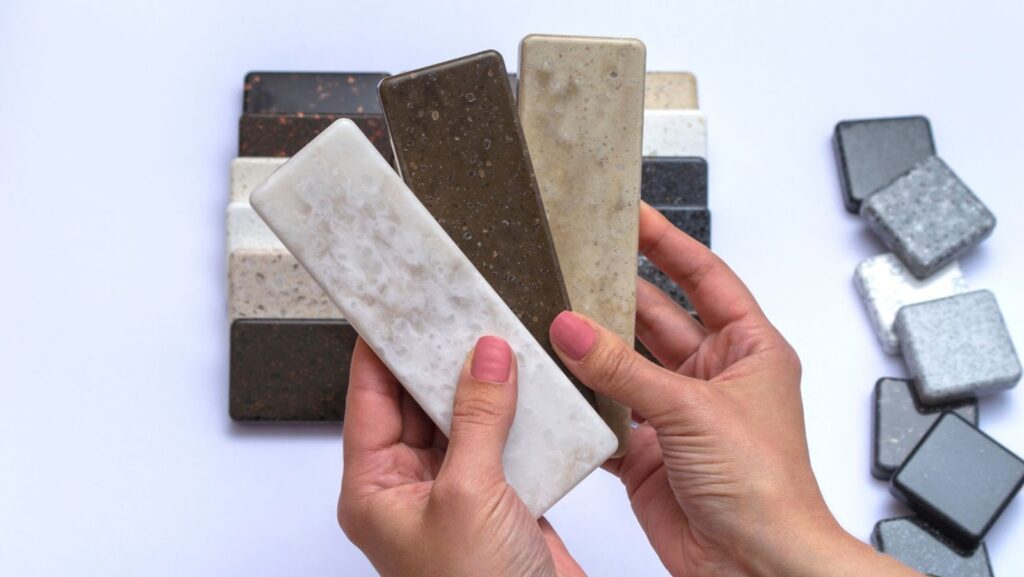
When choosing a new countertop for your home, it can be hard to decide what material to go with. Solid surface and quartz countertops are popular choices because they each have their own benefits, but which is right for you? This guide explores what makes each option unique so that you can make the best decision for your home.
What are solid surface countertops and quartz countertops made of
Solid surface countertops are made of acrylic or polyester resin and offer a seamless, non-porous look. Quartz countertops are engineered from natural quartz stone and pigments, providing a unique pattern for each slab.
Solid surface countertops vs quartz
- What are the advantages and disadvantages of each
One of the main advantages of solid surface countertops is that they can be repaired easily if damaged, whereas quartz countertops will need to be removed or replaced entirely. On the other hand, solid surface countertops tend to have a more homogenous appearance than quartz, while quartz can have unique designs and patterns.
- How much do they cost?
Solid surface countertops are typically less expensive than quartz, but the price will vary depending on the brand and style you choose.
- What is the installation process like?
Both solid surface and quartz countertops need to be installed by a professional. The installation process for solid surface countertops is generally less complex than for quartz, however, so it may be a good option if you’re looking to save on installation costs.
What are the benefits of solid surface countertops?
One of the main benefits of solid surface countertops is that they are very easy to clean and maintain. The non-porous surface means that there is no need to worry about bacteria or stains, and any spills can simply be wiped away. Solid surface countertops are also heat resistant, so you can place hot pans directly on them without fear of damaging the surface.
What are the benefits of quartz countertops?
Quartz countertops stand out from other materials due to their unique look and style. They come in a wide range of colors and patterns, which means that you can find the perfect one for your kitchen or bathroom. In addition to this, quartz is very durable compared to solid surface countertops, making it ideal for heavy-use areas.
If you’re trying to decide which countertop material is right for your home, it’s important to consider the benefits of each and what will best suit your needs. Solid surface countertops offer a sleek look that can be easily cleaned, while quartz countertops are durable and come in many patterns and colors. By weighing the pros and cons of each option, you can make the best decision for your home.
How do they compare in terms of durability , maintenance, and cost?
- Solid surface countertops are typically less expensive than quartz, but the price will vary depending on the brand and style you choose. In terms of durability, solid surface countertops are heat resistant and easy to clean, but they can be scratched or damaged more easily than quartz.
- Quartz countertops are very durable and stand up well to heavy use, but they may require more maintenance than solid surface countertops. In terms of cost, quartz countertops are typically more expensive than solid surface, but the price will vary depending on the brand and style you choose.
When it comes to deciding between solid surface and quartz countertops, it’s important to consider your needs and budget. Both materials offer unique looks and benefits, so it’s important to weigh the pros and cons of each before making a final decision. Whether you’re looking for easy maintenance or an impressive design, there is an option for everyone.
When trying to decide between solid surface and quartz countertops, it’s important to consider your needs and budget. While solid surface countertops are typically less expensive, they can be easily scratched or damaged. Quartz countertops are more durable, but they may require more maintenance. Consider the pros and cons of each option before making a final decision.











